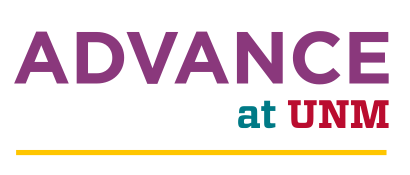10 UNM scientists selected for 2017 Women in STEM awards
A group of UNM professors has received the 2017 Women in STEM awards to honor their research in diverse areas of inquiry, including bioengineering, exercise science, biology, linguistics, political science and astronomy and physics.
Among other topics, the winners are studying minority language development, cell division, non-government agencies in Peru and Bolivia, insulin signaling, qualitative comparative analysis, and the detection and treatment of amyloid diseases.
The winners are the second group in a competition that began last year after UNM in 2015 received a donation through the Chicago Community Foundation. The donor requested that the money be used to support research by women STEM faculty. UNM established an endowed account and dedicated the endowment earnings to women STEM faculty.
The Women in STEM (WIS) awards competition was developed through a collaboration between UNM Acting President Chaouki Abdallah, Vice President for Research Gabriel Lopez, and the ADVANCE at UNM program, a five-year National Science Foundation project that promotes women STEM faculty.
The WIS awards seek to assist women STEM faculty at the assistant and associate professor levels to develop new interdisciplinary research and research collaborations. Awards will support new research, travel to visit research collaborators, and for interdisciplinary workshops. Proposals are solicited, reviewed, and then winners selected by a committee consisting of women STEM professors. The Office of the Provost and the Office of the Vice President for Research provide support.
“This competition not only allows us to help talented UNM faculty, it provides an opportunity to highlight the wide range of work done by women STEM faculty. We’re looking forward to promoting this year’s awardees,” said Dr. Julia Fulghum, director of ADVANCE at UNM.
This year’s research awards went to:
Eva Chi of the Chemical and Biological Engineering Department for her work to develop theranostic agents for the simultaneous detection and treatment of amyloid diseases, which are the cause of Alzheimer’s and Parkinson’s diseases. Her project aims to diagnose and treat these diseases.
Christine Mermier of the Health, Exercise and Sport Sciences Department and Kristina Trujillo of the Cell Biology and Physiology Department for their work on understanding the link between mitochondrial function and insulin signaling. This research could lead to improved insulin signaling in cell culture and even reduce high-fat-diet induced insulin resistance.
Naomi Shin, Barbara Shaffer and Jill Morford of the Linguistics Department to research how children learn minority languages when exposure to the language is limited. This research examines children’s acquisition of two U.S. minority languages, Spanish and American Sign Language, and investigates whether acquisition of grammar is determined by amount of exposure to those languages or by cognitive maturation. The study is also designed to address parental concerns about whether and how often to speak to children in minority languages.
Jami Nelson Nunez of the Political Science Department to investigate interactions between nongovernmental organizations and mayors in decentralized settings around challenges into service delivery. She will investigate the conditions under which collaborations between the mayors and nongovernment organizations are likely to develop. The funding will help provide the means to do field research in cities in Bolivia and Peru.
This year’s travel awards go to Ylva Pihlstrom of the Physics and Astronomy Department and Kendra Koivu of the Political Science Department. Pihlstrom will use the funding to visit the NASA Jet Propulsion Laboratory in Los Angeles to survey stars that will help explore the structure of the galaxy and the Galactic Bulge. Koivu will use the funding to travel to Budapest for a two-week intensive workshop on qualitative comparative analysis. Qualitative comparative analysis is an algorithmic form of qualitative analysis based on a set theory of mathematics that studies collections of concepts as sets.
Michelle Facette of the Biology Department won a seed award to further her work on the development of fluorescent protein marker lines for monitoring cell division in maize. Fluorescent proteins allow protein dynamics to be monitored prior to cell division. This research will help to understand the critical development process through live cell imaging.
Pihlstrom said she’s thrilled to accept her travel award.
“I am very excited and grateful to receive the Women in STEM ADVANCE travel grant,” she said. “This will allow a work week with a collaborator at Jet Propulsion Lab, where we can really focus on iron out our modeling details.
Our project aims to develop a new method of measuring statistical distances to evolved stars using radiative transfer modeling of the stellar light, reprocessed in the circumstellar envelope. Via the calculated properties stellar distances can be derived, which are crucial for, e.g., testing dynamical models of the Milky Way galaxy,” Pihlstrom said.
Nelson Nunez said the award will enable her to conduct qualitative research and pilot a survey of mayors to be conducted this summer in South America.
“I am extremely grateful for the support of WIS for my work and my ideas. The funding comes at a crucial time for me and will allow me to take on a challenging, but relatively unexplored issue around what helps mayors to provide basic services in rural areas, especially in drinking water and improved sanitation.
“I plan to use the award to compare the relationships between mayors and NGOs in Peru and Bolivia to investigate the factors that facilitate collaboration and to examine what types of collaboration have yielded better results in the water and sanitation sector,” Nelson Nunez added.
The call for the 2018 awards will be announced later this year. Visit advance.unm.edu for more information or follow us at @advanceunm. Read about the 2016 winners.
